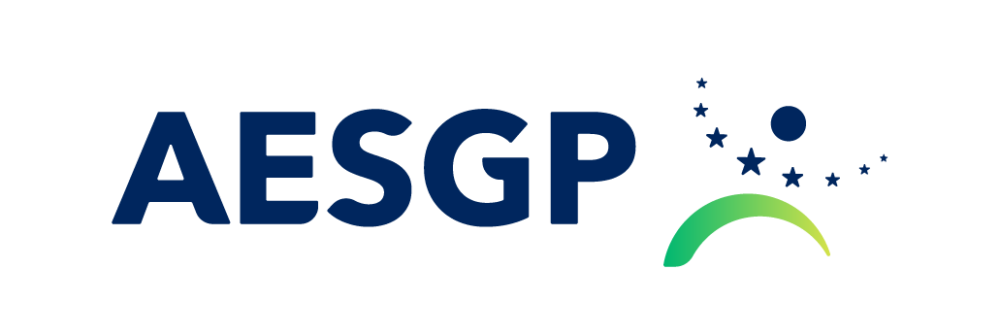60 years celebrating self-care
For the past 60 years, we have been empowering people to take better care of their health and well-being. It all started in 1964 when our organisation was founded in Paris. Back then, no one talked about self-care as a necessity. We did our bit to change that.
Timeline
1964
The Association Européenne des Spécialités Pharmaceutiques Grand Public (AESGP) is founded in Paris by a small group of representatives, primarily from the companies Miles, Nicholas and Vick, under the Chairmanship of Ben McClure of Vick International.
1965
The first piece of European legislation for pharmaceuticals – Directive 65/65/EEC is adopted. It provides the definition of a medicinal product, introduces the requirement for an authorisation before commercialisation and sets out labelling provisions.
1970
AESGP, together with the Associations from the United States and Canada, founds the World Federation of Proprietary Medicines’ Manufacturers (WFPMM) that would later on become the World Self Medication Industry – WSMI (today known as Global Self-Care Federation – GSCF).
1974
AESGP sets up a Committee for Proprietary Medicinal Products to facilitate the principle of mutual recognition of marketing authorisations.
1978
In the late 70s and early 80s, the critical role individuals could and should play in maintaining their health is starting to be recognised and supported.
“ (…) people have the right and duty to participate individually and collectively in the planning and implementation of their healthcare” World Health Organization (Declaration of Alma-Ata)
1986
AESGP organizes its Annual Meeting at the premises of the World Health Organization in Copenhagen.
1992
Important changes are made to the EU legal framework for pharmaceuticals including:
- The classification status of medicinal products, distinguishing between prescription and non-prescription medicines
- Allowing the advertising of non-prescription medicines to the public
- Requirements for Patient information (labelling and package leaflets)
- Regulation of Homeopathic medicines
1993
AESGP supports the development of a distinct non-prescription medicines sector in Eastern European countries. It published a policy document “Developing Self-Medication in Central and Eastern Europe” in Russian, Bulgarian, Czech, Hungarian, Polish and Ukrainian.
AESGP signs a Charter of Collaboration with European pharmacists’ body PGEU in 1993, which was renewed in 2004 and 2012.
1995
The European Medicines Agency (EMA) is established, and the centralised procedure for the authorisation and supervision of medicinal products comes into operation. AESGP organizes its first meeting with national medicines regulators and EMA in London in 1995.
1997
AESGP and European doctors’ associations produce with the support of the European Commission the information document on “What is self-medication”.
1998
AESGP establishes its Food Supplements Committee.
AESGP conducts a study to improve patient information leaflets to make them more readable and useful to patients following a request by the European Commission.
AESGP conducts a study on herbal medicines commissioned by the European Commission leading to the foundation of Directive 2004/24/EC.
2002
The European Commission funds the AESGP study “Information policy for non-prescription medicines” which examines different indications for self-care.
The High-Level Group on Innovation and Provision of Medicines, a European Commission policy initiative, publishes a report making significant policy recommendations for non-prescription medicines, noting that no price control is required for these products.
2004
A revision of the European marketing authorisation procedures in 2004 gives non-prescription medicines the possibility to use the centralised procedure. In 2009, Orlistat and Pantoprazole are reclassified through the centralised procedure, followed by reclassifications of Esomeprazole in 2013 and reclassifications of Ulipristal in 2015.
Legislation on herbal medicines introduces harmonising definition of ‘traditional herbal medicinal products’ which could benefit from the simplified procedure and sets up a Committee on Herbal Medicinal Products within the EMA.
2011
The European Commission launches a 3-year policy initiative examining Ethics and Transparency in the pharmaceutical sector and Access to medicines in Europe and Africa. A dedicated multi-stakeholder project group on non-prescription medicines examines how to improve the uptake of medicines following reclassification to non-prescription status.
2012
AESGP establishes its Medical Devices Committee.
2014
The pilot project on the promotion of self-care systems in the European Union (PiSCE) starts in September 2014. The PiSCE project brings together the self-care industry, patient and consumer representatives, healthcare professionals, health educators, universities, and experts in the field of self-care. Over 3 years, it produced a set of policy actions on self-care at the EU level as well as guidelines on self-care promotion and communication tools.
2017
The new EU Regulation on medical devices, which distinguishes substance-based medical devices, is adopted.
2019
The World Health Organization launches its first guideline on self-care interventions for health, with a focus on sexual and reproductive health and rights, recognizing that “the importance of self-care interventions for health policy, financing and systems has thus far been undervalued and its potential not fully acknowledged”.
The World Self-Medication Industry (WSMI) becomes the Global Self-Care Federation (GSCF). The change of name reflects a fundamental shift in WSMI’s approach, re-positioning it as a more outward-looking organization, with a more active role in shaping the future of self-care.
2021
AESGP signs the Global Charter for Environmentally Sustainable Self-Care, an initiative spearheaded by the Global Self-Care Federation (GSCF). The Charter is the first industry-wide climate action resolution issued by the consumer health sector and calls on GSCF members to commit to concrete pledges addressing three priority areas: ‘Plastics & Packaging’, ‘Pharmaceuticals in the Environment’ and ‘CO2 Footprint’.
2023
AESGP incorporates sustainability in its core mission statement, reflecting the vital interplay between environment and health, and establishes its Environmental and Sustainability Committee.
AESGP publishes an updated overview of the economic and social value of self-care and provides policy recommendations for its promotion in Europe.
